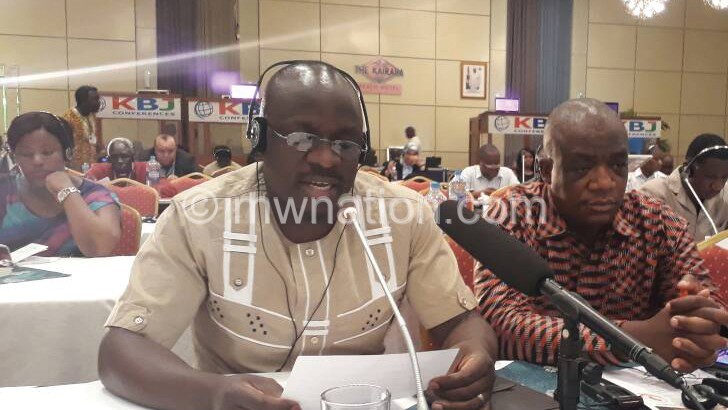Activist faults govt’s human rights report
Malawi Government has dodged sticky human rights issues in its report on State of Human Rights Situation in the country at the 61st Session of the African Commission on Human and Peoples’ Rights (ACHPR) in Banjul, The Gambia.
The development has not pleased some key human rights organisations who said government tends to regard such platforms for national image clearing instead of giving sincere situations on the ground for the country’s benefit.

In the report presented to the session last week by Ministry of Justice and Constitutional Affairs chief State advocate Pacharo Kayira, Malawi tackled the issue of Access to Information (ATI) Act, raising of a child’s age from 16 to 18 years and the National Action Plan Against Trafficking in Persons 2017-2022, leaving out several other sticky issues.
Sticky issues included progress on investigations into mysterious murders of University of Malawi’s The Polytechnic engineering student Robert Chasowa and Anti-Corruption Bureau (ACB) director of corporate affairs Issa Njauju; the impending HIV and Aids Bill; the blood sucking myths and deaths of innocent citizens and independence of some public institutions such as the ACB and Malawi Police Service.
Commenting on the issue, Centre for Human Rights and Rehabilitation (CHRR) executive director Timothy Mtambo, who attended the session in The Gambia, expressed worry with government’s commitment towards promotion and protection of human rights.
He said: “While we commend government for the progress made like the ATI Act, we expected them to do better in updating the commission on some serious human rights violations and other issues.”
Mtambo appealed to government to ensure that the laws, policies and institutions established are operational and properly funded.
He said: “For instance, we have the Legal Aid Bureau seriously under-staffed and under-funded, the Human Rights Action Plan was finalised, but up-to date it is not adopted and not operational, the ACB is there but corruption cases are escalating everyday with its independence seriously questioned, these are bad indicators.”
But in an interview yesterday, Kayira justified government’s statement on status of human rights in the country. He said it was practically not possible to include everything in the report.
Said Kayira: “We have seven minutes to make a statement so we choose a few things. For example, the ATI Act was tackled, the HIV and Aids Bill was tackled during the 60th session in Niger. There are zillion controversial issues and we can’t tackle all.”
Kayira, who also heads the Human Rights Section in the Ministry of Justice and Constitutional Affairs, said most critical human rights issues left out in the report would be included in the State report to be submitted to the commission early next year. n





